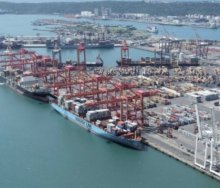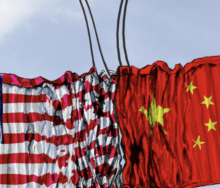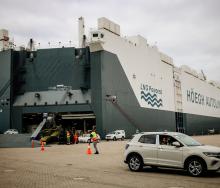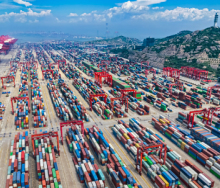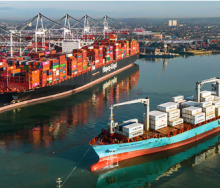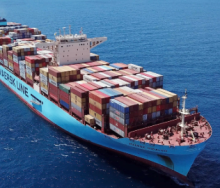The world’s largest country by population has further strengthened its already firm grip on ensuring supply chain security with yesterday’s launch of a state-owned entity to oversee the Asian giant’s freight concerns – China Logistics Group.
News of the launch heralds yet another high for Beijing’s push to strong-arm its way into assuming a dominant position in global freight dynamics while Covid-19 continues to disrupt supply chain functions across the globe.
Earlier this year the containerisation industry shifted towards Chinese monopolisation when Maersk sold its box manufacturing business to China International Marine Containers (CIMC) for $987.3 million, a deal said to be the Danish line’s most lucrative transaction in its 94-year history.
September’s container clincher saw CIMC acquire all the carrier’s box manufacturing interests in Qingdao, including all of Maersk Container Industry’s research and development facilities in Tinglev, Denmark.
It means that CIMC now controls 96% of the world’s container manufacturing capacity.
Now, with the emergence of a new supply chain parastatal, it’s clear that Chinese freight consolidation is aimed to operate at a scale never seen before.
China Logistics Group (CLG) was formed by merging China Railway Material group and four units of the country’s state-owned capital expenses company, China Chengton Holdings Group: China Material Storage and Transport Co, CTS International Logistics Corp, China Logistics Co and China Packaging Corp.
China Eastern Airlines, Cosco Shipping and China Merchants Group have respectively secured 10%, 7.3% and 4.9% in strategic investments in CLG.
Remaining shares are held by the Assets Supervision and Administration Commission, another state-owned company.
Its wide assembly of buy-in partners will afford CLG the ability to provide services across the freight spectrum – e-commerce, distribution, multimodal transport, packaging, warehousing, and trade facilitation.

